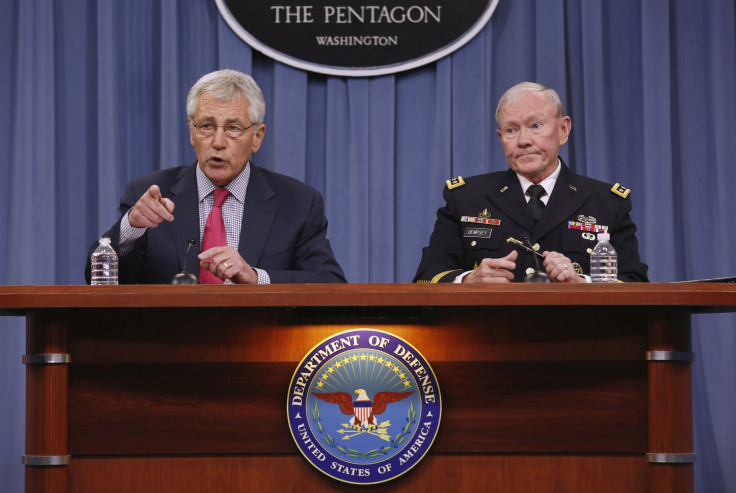Failed Hostage Rescue Mission: Why The Pentagon Disclosed Special Operation

Facing the probability of media leaks, the White House decided to disclose that U.S. special operations had attempted to rescue journalist James Foley and other hostages from Islamic militants in Syria. The mission, which took place in early July, failed. Defense Secretary Chuck Hagel explained the administration's reasoning in a press conference on Thursday.
“There were a number of news outlets that were aware of the action, of the raid,” Hagel said. “It was a decision made by the administration, which we concurred with, to address the mission.”
Concern for the families of the American hostages (presumably including Foley's relatives) was another factor in the revelation. “The administration informed the families of this effort so it was the decision -- and it was unanimous -- that we should in fact acknowledge this effort without going into specifics,” Hagel added.
The administration may also have been hoping to quash any narrative that portrayed the president as having been passive about the threat posed by the Islamic State of Iraq and Syria (ISIS).
The Pentagon did not acknowledge any flaws in the rescue plan or operation, despite its failure -- the hostages were not at the expected site -- and Foley's subsequent murder.
Martin Dempsey, chairman of the Joint Chiefs of Staff, praised the mission, which he described as being “executed flawlessly.”
“It was not failure of intelligence,” Hagel said. “The underlying objective [of summer operation] ... was to do everything we could to rescue the hostages.”
© Copyright IBTimes 2024. All rights reserved.






















